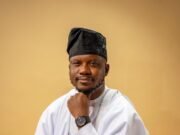The University College Hospital (UCH), Ibadan said it had performed over 100 cases of hip and knee joint replacement in the last two and a half years to restore the quality of life to people with arthritis.

Head, Department of Orthopaedics and Trauma, Dr Michael Okunola, speaking at the opening of a knee and hip arthroplasty workshop at the hospital, said it was part of the hospitals’ rebirth of excellence programme to meet the needs of many Nigerians that require knee and hip joint replacement.
Okunola said before now services for joint replacement have not been widely available in Nigeria and as such a backlog of patients that need this procedure since they could not travel abroad for its treatment.
According to him, about 40 per cent of people above 60 years of age will have arthritis in one joint or the other, adding that the commonest joints that are affected are the hip joint and the knee joint, been weight-bearing joints.
He said: “Usually these patients present with symptoms such as pain, difficulty in walking and deformity and a reduction in their everyday activities.

“Some patients have been going abroad to have this procedure done, but many of our patients do not have the financial capability to travel abroad to have the procedure. So we have a lot of patients in Nigeria that will benefit from this procedure.”
Okunola, who noted it was more cost effective to have a hip or knee joint replacement done at the hospital, declared that doing so will also affords such patients the required follow up care after the treatment.
According to him, “in the past, they have done knee replacement at UCH, Ibadan. But due to brain drain, the experts left. We had to bring it back in line with the rebirth of excellence agenda of the hospital.”
The lead trainer and visiting consultant arthroplasty surgeon to UCH, Ibadan, Dr Charles Ayekoloye, said the hospital’s arthroplasty unit now operate on patients with bad hip and knee joints once every three months to ensure it could clear the backlog of patients that need this procedure.
He said that majority of these patients had developed bad hip and knee joints from arthritis arising either from sickle cell disease or ageing, adding that severe pain, inability to walk very far distances and compromised quality of life in these patients often necessitated the surgical treatment.
This workshop meant to train 25 orthopaedic doctors drawn from across Nigeria also afforded five patients opportunity to have their bad hip and knee joint replaced.































